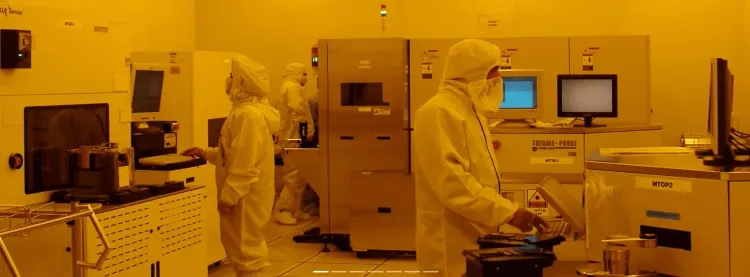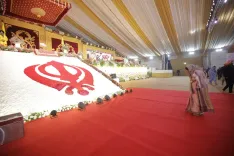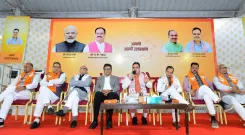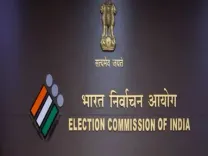Did India Just Launch Its First Fully Indigenous 32-Bit Chip 'Vikram'?

Synopsis
Key Takeaways
- India's first indigenous 32-bit chip is named 'Vikram.'
- Developed by ISRO, it is designed for harsh conditions.
- Significant progress in semiconductor infrastructure has been made.
- India aims to reduce dependency on imported chips.
- Ten projects have been approved under the Semicon India Programme.
New Delhi, Sep 2 (NationPress) In a remarkable achievement for India aiming to become a global semiconductor powerhouse, Union Minister for Electronics and IT Ashwini Vaishnaw unveiled the nation’s first indigenous processor, alongside test chips from four sanctioned projects, to Prime Minister Narendra Modi today.
The newly developed 32-bit microprocessor, named 'Vikram', has been engineered by ISRO’s Semiconductor Laboratory (SCL).
This chip is specifically designed to endure the challenging environmental conditions associated with space launch vehicles, representing a significant step in India's mission to lessen reliance on imported chips.
At the 'Semicon India 2025' event, Vaishnaw emphasized the swift advancements within India's semiconductor framework.
“Just a few years ago, we convened for the first time to initiate a new journey inspired by our Prime Minister's visionary outlook, and we launched the India Semiconductor Mission. In a brief period of 3.5 years, the world is now looking towards India with optimism,” the minister stated.
“Currently, the construction of five semiconductor facilities is progressing rapidly. We have just presented the inaugural 'Made-in-India' chip to PM Modi,” he added.
India’s semiconductor development has accelerated under the Semicon India Programme.
The government has sanctioned 10 projects focusing on essential areas such as high-volume fabrication units (Fabs), 3D heterogeneous packaging, compound semiconductors, and outsourced semiconductor assembly and testing (OSATs).
Additionally, design-oriented initiatives have endorsed over 280 academic institutions and 72 start-ups with advanced tools, while 23 start-ups have received approval under the Design Linked Incentive (DLI) scheme.
The flagship event will span three days, featuring keynote speeches, panel discussions, fireside chats, paper presentations, and six international roundtables.
A dedicated 'Workforce Development Pavilion' will showcase career prospects in microelectronics to draw in new talent.
With leading companies such as Applied Materials, ASML, IBM, Infineon, Lam Research, Micron, Tata Electronics, SK Hynix, and Tokyo Electron participating, SEMICON India 2025 is poised to catalyze India's next wave of semiconductor innovation and reinforce its standing in the global value chain.









